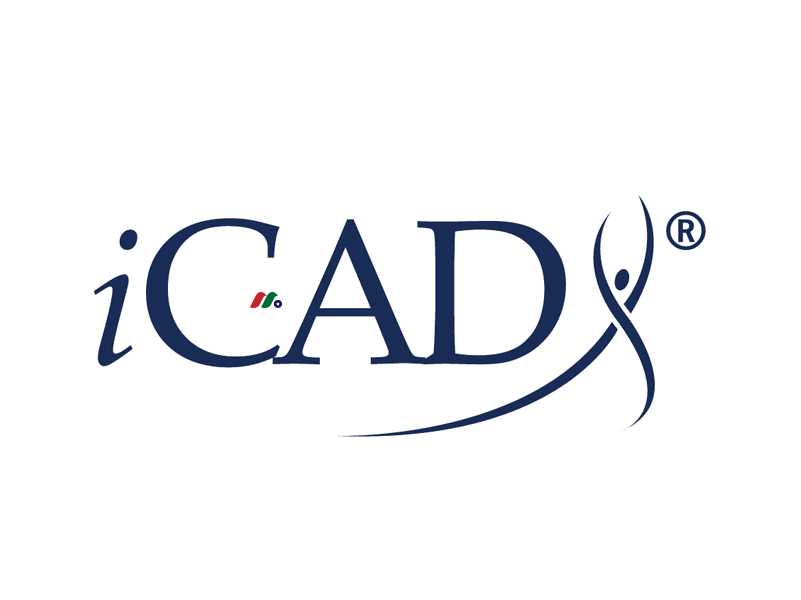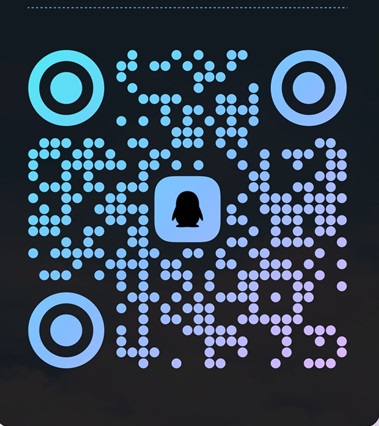
iCAD, Inc.(NASDAQ:ICAD)创立于1984年,前称Howtek, Inc.,于2002年2月改为现用名,总部位于美国新罕布什尔州Nashua,全职雇员66人,是一家软件公司,提供图像分析,工作流程解决方案和医疗成像系统支援软件,以便在美国和国际上早期识别和治疗癌症。

iCAD, Inc.(ICAD)美股百科
iCAD, Inc.是一家医疗设备制造商,在美国从事提供癌症检测和治疗解决方案。iCAD Inc. 提供计算机辅助检测 (CAD) 以支持检测乳腺癌、前列腺癌和结直肠癌。iCAD 技术平台还包括用于放射治疗的硬件和软件。
iCAD 是医疗技术领域的全球领导者,提供创新的癌症检测和治疗解决方案。iCAD公司分为2个部门来运作:Cancer Detection(癌症检测)和Cancer Therapy(癌症治疗)。iCAD提供精确、强大的医疗保健解决方案,这些解决方案经过专业设计,可优化运营效率、临床医生的信心和患者的治疗效果。
iCAD 公司的乳腺AI套件包括针对2D和3D乳房X光摄影的癌症检测、自动化密度评估和乳腺癌风险评估解决方案。iCAD 提供:
- PowerLook,一种后端架构平台,该平台托管AI算法解决方案,并管理图像采集系统与图像存储和审查系统之间的通信;
- SecondLook,一种基于机器学习的癌症检测算法,用于分析2D全视野数字化乳房摄影图像,以识别并标记可疑的肿块和钙化物;
- PowerLook Density Assessment,提供自动化、一致性和标准化的乳房密度评估;
- ProFound AI,这是一个深度学习算法,设计用于检测数字化乳房断层扫描中的恶性软组织密度和钙化物;
- ProFound AI Risk,这是一种基于筛选乳房X光摄影图的乳腺癌风险估计的临床决策支持工具;
- VeraLook,这是一种设计用于支持在计算机断层扫描结肠造影中检测结肠息肉的解决方案。
此外,iCAD还为大学研究和社区医院、癌症护理诊所、兽医设施和皮肤科办公室提供Xoft Axxent电子近距离放疗系统,用于治疗早期乳腺癌、非黑色素瘤皮肤癌和妇科癌症。
iCAD公司通过直接销售组织以及通过各种原始设备制造商合作伙伴、分销商、技术平台合作伙伴和经销商销售其产品。iCAD还将其产品出口到欧洲、台湾、加拿大、中国以及国际市场。
iCAD, Inc.(ICAD)美股投资
2025年4月15日,诊断成像服务提供商 RadNet 和人工智能乳腺健康解决方案提供商 iCAD (纳斯达克股票代码:ICAD) 周二宣布,他们已达成最终合并协议,根据该协议,RadNet 将以全股票交易的方式收购 iCAD。
| 行情 | 直达行情 | 交易 | 内部交易 |
|---|---|---|---|
| 百科 | 美股百科 | 持股 | 十大机构 |
| 财报 | 公司财报 | 期权 | 期权交易 |
| 官网 | 公司官网 | 预测 | 营收预期 |





7F
In calendar year 2016 fourth quarter, iCAD lost $3.3 million versus the $2.4 million lost in the previous-year same period. Revenue during the quarter dropped 8.95 percent to $6.93 million from $7.61 million in the previous year period. Debt was $0.2 million as on Dec. 31, 2016, down 83.98 percent from a year earlier, while cash and cash equivalents stood at $8.6 million at quarter/year end.
6F
In November, 2012, the company’s products were granted a more-than-doubled reimbursement rate from U.S. Centers for Medicare & Medicaid Services “for the Company’s Xoft Axxent Electronic Brachytherapy System”. The news led to a spike in stock volume and the price began to move, more than doubling by mid-January 2013. At that time, noting the move already made by the stock, a stock analyst reviewed the company’s history and situation. With standard caveats, the analyst wrote that recent developments “could cause shares to double in a year and potentially triple over the next 24 months”.
5F
Swedish Covenant Hospital in Chicago offered Xoft’s Axxent Electronic Brachytherapy System treatment, beginning in 2008. The hospital did not participate in the study in which the Axxent FlexiShield Mini — the device that has been recalled — was used in conjunction with intraoperative breast irradiation, nor has the hospital used the Axxent FlexiShield Mini on any patients.
Starting in February, 2011, a series of parallel product liability suits have been filed in Orange Country Superior Court, totaling ten Jane Doe complainants and a number of John Doe spouses by August, 2011, per the September 30, 2011 10-Q filing by the company. The first and later of the plaintiffs, who consented to the experimental treatment, were represented by lawyer Jeff Milman.
In July 2011, Zach’s Investment Research initiated coverage of the stock with a neutral rating and “positive on iCAD’s fundamentals” but said “we believe caution is warranted until there is more clarity on the potential and likely liability related to a recently filed product liability lawsuit”. While the company reported “strong revenue growth” for the first nine months of 2011, it also reported lawsuit and other legal expenses of $1.5 million as a component of a “Non GAAP Adjusted EBITDA” of negative $6.8 million.
In January 2013, an Inflection Point Investing stock analyst wrote in part, under “Risks”: “Potential legal liability for a third-party related recall for a Xoft accessory product remains a small concern. We do not feel that this risk is material or anything to dwell upon.”
4F
Within a week of iCAD’s closing on the Xoft acquisition, the Axxent FlexiShield Mini, used with its portable radiation device, the Axxent Electronic Brachytherapy System, was found to have left test subjects “riddled … with hundreds of tiny particles of the heavy metal tungsten in their breast tissue and chest muscles.” Twenty-seven of the cases occurred at Hoag Memorial Hospital Presbyterian in Newport Beach, Orange County, California. Eleven of those women have had mammograms, and all 11 showed tungsten. Two other women were treated in a study at Karmanos-Crittenton Cancer Center in Rochester Hills, Michigan. Full implications of the mistake had not been determined as of mid-March, 2011, but the company and the FDA had executed a recall on the FlexiShield Mini and were investigating.
3F
iCAD continues to experience a period of growth in its cancer therapy business. Radiation treatment for breast, skin and gynecological cancers is moving from conventional external beam therapy to shorter duration, more targeted therapy. The advantages of the Xoft System, which is FDA cleared for treatment anywhere in the body, have significant potential to improve patient care and quality of life.
iCAD is also applying its patented technology and algorithms to the development of CAD solutions for use with digital mammography and CT Colonography (CTC). The company is also increasing distribution through large OEM partners, such as General Electric (GE).
2F
iCad originally focused on image-analysis products designed to help radiologists and other health-care providers detect cancers early. In December 2010, iCAD expanded the company’s oncology footprint by acquiring Xoft, Inc. It acquired Xoft’s Axxent system which delivers radiation therapy directly to cancer sites with minimal radiation exposure to surrounding healthy tissue, according to the company. The system was approved in the U.S. for early-stage breast cancer, endometrial cancer and skin cancer, as well as other varieties where radiation therapy is indicated, the initial report on the acquisition stated. The shield used in the system had been cleared by the Food and Drug Administration (FDA) in June 2009 in an abbreviated process used for devices that are considered equivalent to products already on the market. That process, known as 510(k), takes less time than the procedure used to approve a new device, and it generally does not require tests on humans.”
1F
iCAD was founded in 1984 as Howtek, Inc. Howtek developed, manufactured and marketed digitizing systems or scanners. The scanners converted printed, photographic and other hard copy images to digital form for use in the graphic arts, photo finishing and medical industries. From 1984 to 2000 Howtek successfully developed a series of products that improved the quality of digital imaging while reducing the price and complexity of digitizing systems. In 2001, foreseeing a decline in the graphic arts and photo finishing industries, Howtek elected to focus solely on the medical imaging market. The company acquired Intelligent Systems Software, Inc. (ISSI) which had developed an approved computer-aided detection system for breast cancer. Subsequently, the company acquired Qualia Computing, Inc. of Ohio and its subsidiary, CADx Systems, Inc. These acquisitions brought together two of the three companies with FDA clearance to market CAD solutions for breast cancer in the United States.